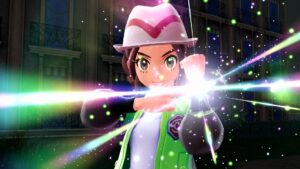Breath of Fire 4
This example from the underrated, but best entry in the series, Breath of Fire 4 takes some explaining. The game crafted a dual narrative, with players controlling the amnesiac half-wyvern Ryu, whilst switching to scenes where you took control of the game’s main antagonist Fou-Lu. It was interesting getting a look into the mind of your foe, but it meant that one of your player characters was always going to die, no matter what you did. Hell, if you decide to opt for the cheap ending, both characters fuse together and kill the other members of your party in a final showdown. Talk about treachery
Halo: Reach
A lot of people think that it is enough for games to be considered “art” if they look pretty. I don’t think that’s enough though, with great works of film, TV and literature all using the idiosyncrasies of their respective mediums to convey their subject matter. Halo: Reach was one such game that, despite depicting a standard science fiction narrative throughout, masterfully used the gaming medium to convey its desolate and inevitable ending. The fact that Bungie gave players the chance to attempt to claw their way through was engaging, and the cracking of visors and disappearing HUD elements were a nice touch to emphasise the sad demise of Noble Six.
Crisis Core: Final Fantasy VIII
An intriguing case of a prologue being used to create a sense of dramatic irony. With Final Fantasy 7 being one of the most successful games of all time, there are very few gamers who weren’t aware of the fate that would befall Zack at the end of the game. That said, it still tugs at the heartstrings. I’d be lying if I said he didn’t come across as a massive douche at the beginning of the game, but you really feel for the guy at the end. Compound this with his epic struggle to protect Cloud during the game’s epilogue, and you have the death of a true hero.
Persona 3
This one doesn’t get a full explanation unless you’ve played through The Answer epilogue story that was on the Persona 3 FES disc. That said, considering how constant death is within the game’s narrative, you can easily get the implication that the silent protagonist sacrifices himself at the end of Persona 3. Considering how many characters get axed leading up to this point, it isn’t all that surprising, but it remains an emotional moment regardless.














